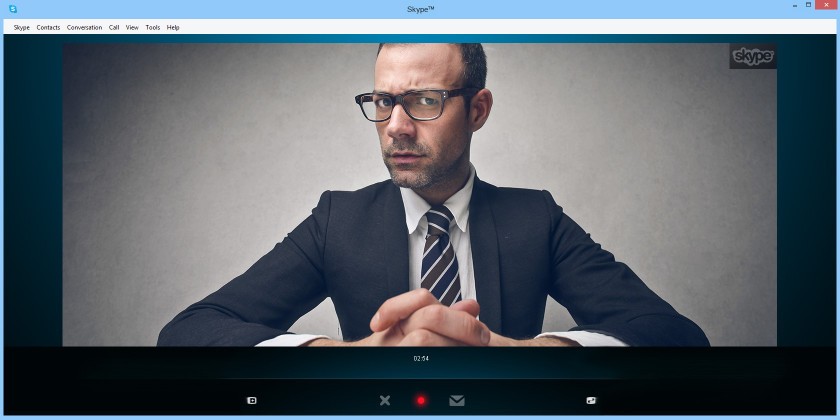Recruitment Speed: How Skype Has Changed the Interview
By: Together Abroad 05-12-2016
Categories:** HR Trends in Recruitment,

Where Do the Candidates Stand?
Candidates generally welcome the video interview. It liberates them from the obligation to travel and provides a pleasant alternative of interviewing from a familiar environment. It is more desirable than a phone call interview, because you can read your interviewer’s facial expressions, which ensures better communication. Compared to a face-to-face talk, it lifts (to a certain extend) the problem of candidates having to be constantly conscious about their body language.
The potential danger lies in candidates taking this comfort to the extreme. Some candidates can take the video interview too casually and not show their most professional side. Traditional interview rules apply: candidates should prepare for the interview adequately, be on time and appear professional.
What Does Skype Mean for Your Recruiting Process?
Some of the advantages are obvious – this technology is free, widespread and easy to use. It saves expenses on travel and venue, and potentially allows for more availability in candidates. It provides an elegant solution if you do not have an office or a dedicated room for interviews. But aside from all these, there are other benefits that may be a little less obvious.
Big businesses tend to have a large number of applicants, and more often than not, insufficient resources to screen them all. Their options are to either outsource the hiring process, or to simply speed things up and make them more efficient, which brings us to Skype interviews. Speeding up the hiring process means that you can invest more time and energy in the best candidates, therefore it helps you ensure that you will truly hire the candidate that is most suitable.
When to Use It
Intuitively, you probably would not Skype-interview everyone who submits their CV. Also, you probably wouldnot hire someone without actually meeting them in person. Therefore, video interviewing is commonly used after the initial CV screening and before the final in-person interview stage. Why is it so ideal in the middle of the recruiting process? Because this is the stage that tends to be more expensive than the initial screening – so it reduces the costs, while sill effectively identifying people of high calibre. Some businesses tend to skip the final in-person meeting altogether. This is perfectly fine – sometimes, for filling some positions. But be warned: always meet with the candidate face-to-face when filling a long-term position.
Keep in mind that technology is not always working to the advantage of everyone. Background noise, slow internet connection and strange interruptions can impede the interview process, so take it into consideration when you rate a candidate and if you need to, follow-up with another call.
After the initial (and somewhat unforeseen) success of Skype in recruitment, several dedicated video recruiting software emerged. Compared to Skype, this specialised software often has extra features that allow you to record, grade, tag, analyse or share the interview. Some have an on-demand function that lets the candidate record their answers to your questions whenever it best suits their schedule (so-called one-way approach). While most of this software is – unlike Skype – not for free, you can often get your hands on a trial version to see if it suits your business needs.
Veronika Bacova